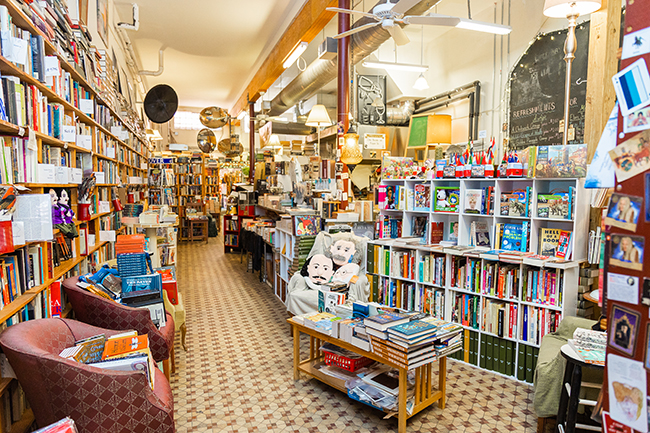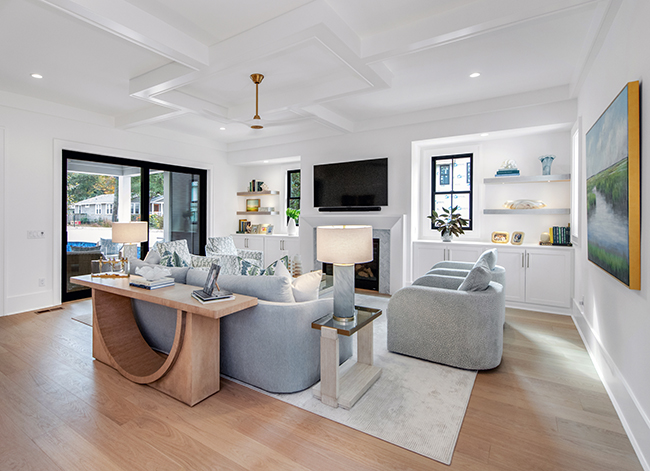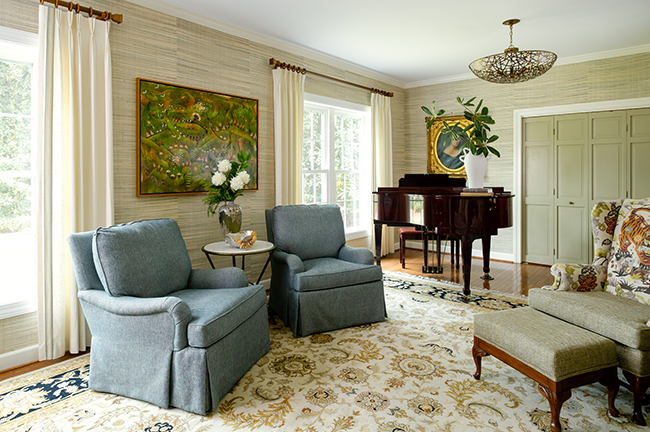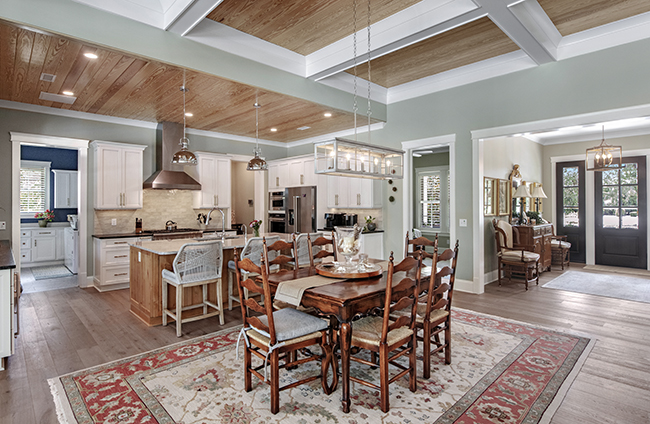Keep Calm and Get Organized
04 Jan 2024
Satisfying Spaces, Inc. owner shares why and how to take control of your living space
By JOE JANCSURAK
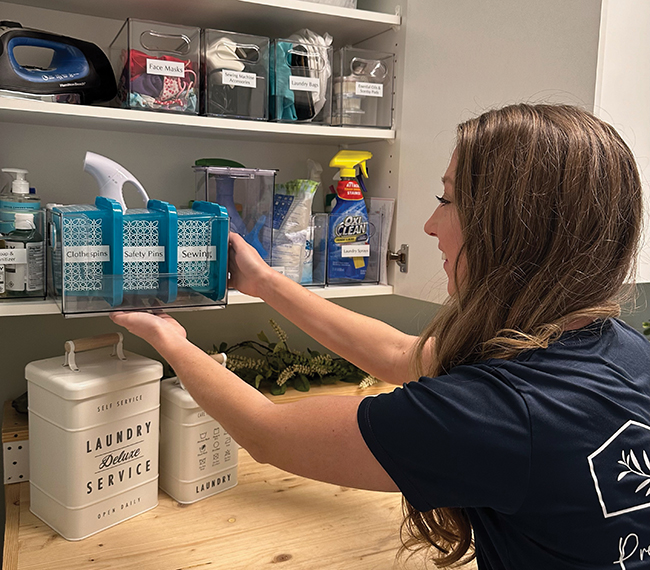
They say we’re all products of our environment. Leland resident and entrepreneur Courtney Borsay is proof positive of that familiar adage. As owner of Satisfying Spaces, Inc., the high-energy married mother of two enjoys making sense of other people’s clutter.
“I was born and raised in a hectic household in Bel Air, Md., with three older brothers and working parents,” she says. “When I was about 12 years old, I would spend my time reorganizing our family home, especially the panty, just for fun. My desire for order and systems grew stronger over time. Now, with two young children of my own and a busy schedule, organization is an essential part of keeping my stress low and my life satisfying.”
Borsay, who founded Satisfying Spaces last June after four years as lead organizer for Simplicity Reclaimed in Wilmington, says she wants readers to experience the organizational peace and serenity that a professional can provide.
“Having too much stuff, losing track of your things, or lacking the appropriate space for your belongings can be overwhelming,” she explains. “A professional can create systems that you are able to maintain, which will increase your productivity while helping you to regain control of your time and space.”
Borsay offers affordable rates as well as free advice.
“First, focus on decluttering one area, such as a bedroom closet or pantry. Empty it completely so you’re able to see the items with which you are working. When decluttering, use a trash bag for trash and labeled bins for Keep, Donate and Sell items. Then create a separate area for items that need to be kept, but that do not belong in the space you are organizing so you can find a new home for them.”
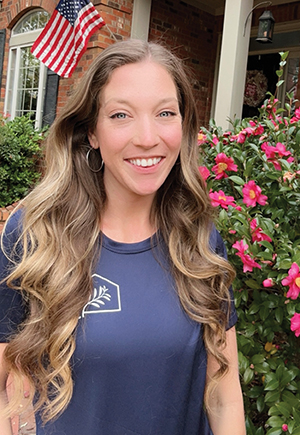
Once these steps are completed, organizing can commence, says Borsay. “Most times, a space needs a better organizational system involving bins, baskets and different furniture. Readers can research options and try systems that have worked for others, but this is often where a professional organizer is valuable.”
As for common mistakes made by non-professionals, Borsay says there are two:
1) Attempting a system before evaluating what you have. Don’t buy the bins and baskets before you know all that you have and have taken the necessary measurements for furniture additions. Otherwise, you may end up with a mish-mash.
2) Not having an area for items that don’t belong. We all have closets, shelves and drawers with items that don’t belong, such as electronics, mementos and tchotchkes. Find new homes for these items as your organizing efforts move forward. Instead of allowing yourself a junk drawer, achieve functional drawers with clear divisions and labels for items such as pens/pencils, batteries, tape, etc.
Once you have organized your space, strive to keep it that way,” Borsay encourages. “Remember, if you have the time to put down the object, then you have the time to put it away where it belongs.”
For items that no longer belong in your space, opportunities for recycling and donating are many. Borsay recommends:
• Habitat For Humanity for furniture and building supplies. Scheduled pickups are available.
• Hope Chest in Leland, Supply, and Oak Island. Donations support abused victims and children.
• Goodwill and Salvation Army stores, which accept a wide variety of items. Multiple locations with convenient donation areas.
• Animal shelters that take used towels.
• UNCW Recycling Center, which is committed to zero waste. They even accept Styrofoam.
• Consignment stores, such as Once Upon a Child and Clothes Mentor
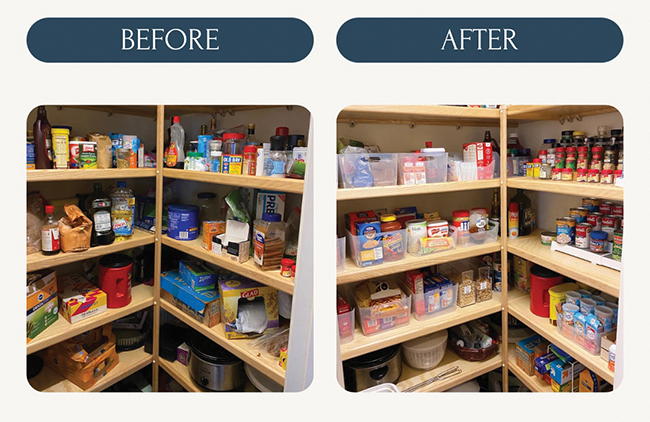
Whether you organize on your own or with the help of a professional, it will be well worth your time and effort, says Borsay.
“I am a firm believer that being organized has a pronounced and positive impression on your mental well-being. Having a clutter-free space will help you to feel calmer, think more clearly and establish a positive mood and mindset moving forward. Just imagine enjoying the peace of mind that comes from always being able to find that manual, purchased gift and countless other objects when you need them.”
When shopping for a home-organization professional, don’t forget to ask about...
• Qualifications, experience and areas of expertise and whether there are tasks that the company does not perform
• Hourly and/or job rates as well as research and shopping time charges
• Customer involvement and what that looks like
• Necessary supplies and who provides them
• Logistics involving donations
• Liability insurance
• Payment schedule and forms of payment

